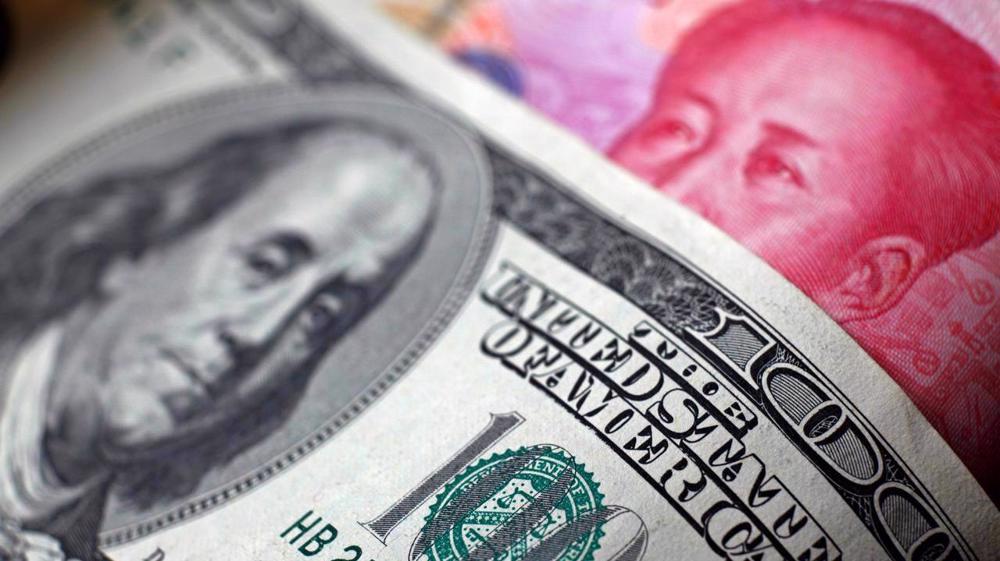Dollar gives ground to higher-risk currencies as Chinese shares soar
The US dollar fell against most currencies on Thursday as a rally in riskier assets such as global equities and commodities put a dent in safe-haven demand for the US currency.
China’s yuan rose to a four-month high against the dollar, extending recent gains as investors of all stripes increased positions in Chinese stocks due to growing signs of a recovery in the world’s second-largest economy.
The euro was up 0.2% at $1.1355 even after German export data failed to meet analysts’ expectations.
The common currency jumped earlier to a one-month high of $1.1371.
The British pound rose 0.3% to $1.2647, a three-week high.
The Chinese yuan soared to a four-month high of 6.9808 in the offshore market and was last up 0.2% against the dollar.
China’s currency has been a star performer as investors shrug off diplomatic tension between Washington and Beijing to focus on China’s improving economy and its attractive technology sector.
The yuan has risen around 2.3% from a seven-month trough against the dollar set on May 27.
“We’ve seen a more generalized view back to riskier assets. The Chinese equity surge has been the poster child for risk-on move across the last few sessions,” said Jeremy Stretch, CIBC Capital Markets’ head of G10 FX strategy.
Chinese shares continued their recent rally, with the blue-chip CSI300 index soaring to a five-year high on Thursday.
“Our bias for the currency quarter is 2% to 3% dollar depreciations and we see no reason to change that,” Stretch said, adding that the US currency should fall as the supply from the Federal Reserve rises and the euro is poised for some modest upside gains on the back of the expected euro zone recovery fund.
Elsewhere in currencies, the Swedish and the Norwegian crowns rose to a one-month high against the dollar of 9.15 and 9.35 respectively.
Highlighting the dollar’s woes, the New Zealand dollar rose to $0.6590, the highest since late January.
(Source: Reuters)
VIDEO | Press TV's news headlines
Iran FM: Response to Israeli aggression 'inevitable'
VIDEO | Iran eases the rules for exporting hand-woven carpets
VIDEO | Intl. Day for the Elimination of Violence against Women: A stark reminder of Gaza women
Australia denies ex-Israeli minister Shaked visa
VIDEO | 85% of Yemeni displaced people face daily hunger crisis
US House passes bill targeting charities and pro-Palestine groups
VIDEO | Supporting Gaza genocide










 This makes it easy to access the Press TV website
This makes it easy to access the Press TV website